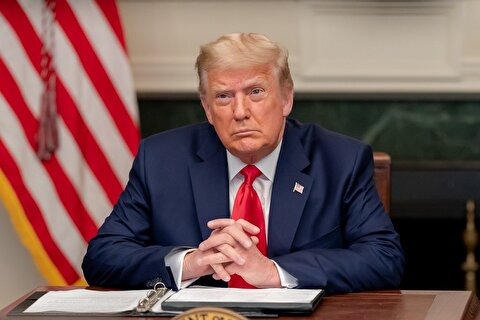
US Congress approves $400mn in Venezuela aid

The House of Representatives voted to approve the spending package in a 280-138 vote yesterday and the Senate is expected to approve it by 20 December. The US administration has allocated $568mn in humanitarian and development assistance to Venezuela since recognizing National Assembly president Juan Guaido as the country's interim leader in January. But only $158mn has been allocated for programs inside Venezuela, including $30mn in humanitarian aid.
The congressional aid mandate allows the administration to continue spending the humanitarian funds both inside Venezuela and to assist the more than 4.5mn refugees who have fled the country in recent years. It also allocates $30mn for democracy programs and another $17.5mn to help prepare for an election and support NGOs inside Venezuela.
Both allocations are an indirect way of boosting the authority of the National Assembly, which has been sidelined by Venezuelan president Nicolas Maduro's government. No funds are provided directly to the Venezuelan opposition, the US Agency of International Development (USAID) says. The congressional legislation specifies that humanitarian funds cannot be allocated through the Maduro government. The assembly has no powers to distribute aid within Venezuela.
Congress also asked the administration to take measures to thwart a potential takeover of US refiner Citgo by Russian state-controlled Rosneft. Venezuela's debt to Russia is backed by a 49.9pc stake in the Houston-based company. The Guaido authority controls Citgo's board, although its parent company, Venezuela's state-owned PdV, remains in Maduro's hands.
Concerns about a potential Russian takeover of Citgo are largely moot anyway. Venezuela has been repaying its debt to Rosneft through oil supply and aims to service the full debt by March. More pressing for Citgo is the array of Venezuela's sovereign debt holders and other creditors, many of which have filed suits in US courts to take over the company in order to satisfy Caracas' unpaid obligations.
Eleven months after Guaido declared his interim presidency, his US-backed opposition coalition in Venezuela has failed to extend its control beyond the legislature, and Maduro's government remains in charge of all other institutions.
Congress has asked the administration for a briefing to assess whether there are elements among the Venezuelan military leadership who are prepared to abandon Maduro and back a government transition. The administration has encouraged senior military commanders to defect, but has been unable to shake Maduro's control of the armed forces.
Administration officials have said they will maintain the current sanctions regime that accelerated the decline in Venezuelan production and exports, even though financial and oil sanctions have not succeeded in undermining Maduro. Venezuela's crude production recovered to around 800,000 b/d in recent weeks, down from a pre-sanctions level of 1.2mn b/d but up from 650,000 b/d in September. In addition to pressure from the government, Guaido faces a power struggle and corruption allegations within opposition circles ahead of a 5 January 2020 legislative poll that will determine the fate of his constitutional claim to the interim presidency.
The administration is likely to extend sanctions waivers for Chevron and US oil field services still operating in Venezuela to prevent a complete collapse of the Venezuelan oil industry that would complicate the country's recovery under a democratic government, according to State Department Venezuela envoy Elliott Abrams. The existing waivers expire on 22 January.
By Haik Gugarats


Alba Discloses its Financial Results for the Second Quarter and H1 of 2025

US slaps tariffs on 1-kg, 100-oz gold bars: Financial Times

Copper price slips as unwinding of tariff trade boosts LME stockpiles

Codelco seeks restart at Chilean copper mine after collapse

Uzbek gold miner said to eye $20 billion value in dual listing

Hudbay snags $600M investment for Arizona copper project

NextSource soars on Mitsubishi Chemical offtake deal

BHP, Vale offer $1.4 billion settlement in UK lawsuit over Brazil dam disaster, FT reports

Australia weighs price floor for critical minerals, boosting rare earth miners

Zimbabwe labs overwhelmed as gold rally spurs exploration, miner says

Cochilco maintains copper price forecast for 2025 and 2026

Adani’s new copper smelter in India applies to become LME-listed brand

HSBC sees silver benefiting from gold strength, lifts forecast

Mosaic to sell Brazil potash mine in $27M deal amid tariff and demand pressures

Samarco gets court approval to exit bankruptcy proceedings

Hudbay snags $600M investment for Arizona copper project

Discovery Silver hits new high on first quarterly results as producer

Trump says gold imports won’t be tariffed in reprieve for market

AI data centers to worsen copper shortage – BNEF

Cochilco maintains copper price forecast for 2025 and 2026

Adani’s new copper smelter in India applies to become LME-listed brand

HSBC sees silver benefiting from gold strength, lifts forecast

Mosaic to sell Brazil potash mine in $27M deal amid tariff and demand pressures

Samarco gets court approval to exit bankruptcy proceedings

Hudbay snags $600M investment for Arizona copper project

Discovery Silver hits new high on first quarterly results as producer

Trump says gold imports won’t be tariffed in reprieve for market

AI data centers to worsen copper shortage – BNEF














